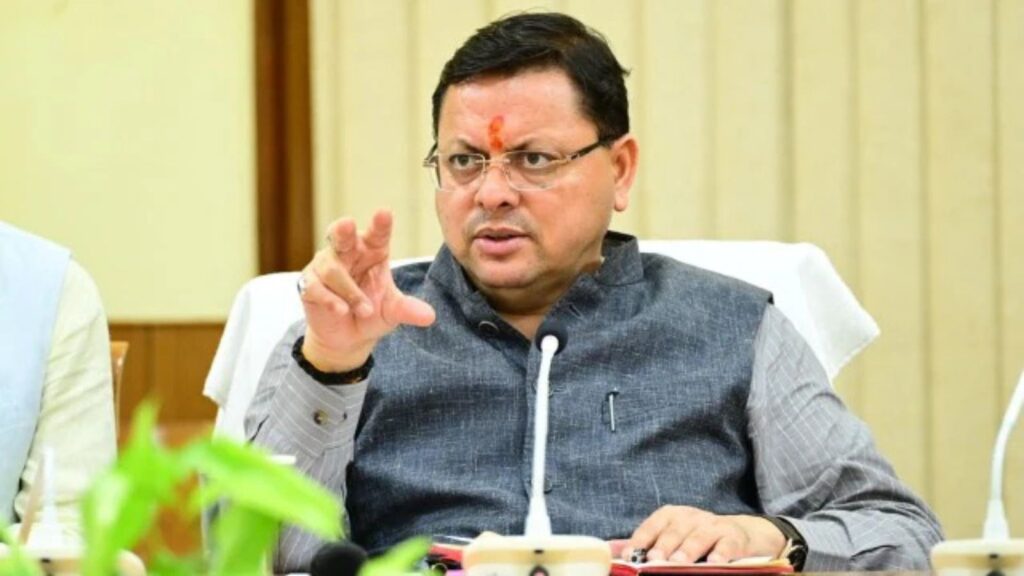The Uttarakhand Cabinet has approved a decision to introduce the Uttarakhand Minority Educational Institutions Bill, 2025, which, among other aspects, will repeal the Madrasa Board and the rules governing the minority-run institutions in the state.
According to an official communication, the proposed Bill aims to extend the benefits of Minority Educational Institutions status to the minority communities other than Muslims. This has sparked concern among Muslim groups that the proposed law might result in erosion of their rights under Articles 26 and 30 of the Constitution that provide rights to run educational institutions and manage religious affairs.
The proposed Bill, if enacted, will also permit the study of Gurmukhi and Pali in recognised minority educational institutions from July 1 next year and will also lead to the dissolution of the Uttarakhand Madrasa Education Board Act, 2016, and the Uttarakhand Non-Government Arabic and Persian Madrasa Recognition Rules, 2019. The rules empower the Madrasa Board to chart the syllabus, set guidelines, conduct examinations, and inspect madrasas to ensure they fulfil eligibility criteria. At present, the board has a Recognition Committee that deals with granting recognition to madrasas. “The committee shall have a member nominated by the 13-member board, an ‘academician-rank’ member, the deputy registrar, and a ‘headmaster-rank’ member,” the rules of the board state.
The proposed Bill is likely to make recognition of the institution null and void as it allows Sikhs, Jains, Christians, Buddhists and Parsis to run minority educational institutions as against the current provision only for Muslims. At present, 452 “recognised” madrasas operate across the state.
It also mandates educational institutions to obtain recognition from the “concerned authority” to qualify as minority educational institutions. It also requires the educational institution to be registered under the Societies Act, Trust Act, or Companies Act while ownership of land, bank accounts and other assets to be in the institution’s name. “Recognition can be withdrawn in cases of financial mismanagement, lack of transparency, or activities against religious and social harmony,” the communication read.
The Dhami government’s move to introduce the Bill comes six months after it started a madrasa-sealing drive to shut institutions not recognised by the board or the education department. The Recognition Committee, which had not met since 2020, convened a meeting on February 27, a day before the drive began, leading to “unrecognised” madrasas being shut.
Expressing concern, Jamiat Ulema-i-Hind’s state secretary Khurshid Ahmed said, “Initially, the Uniform Civil Code curbed the right to practice the religion, the anti-conversion Act will further depreciate the situation. With the madrasa board being nullified, religious education will be hampered. The (Pushkar Singh Dhami) government has been implementing policies to erode the rights that the Constitution guarantees under Articles 25 to 30. We will analyse the Bill once it is introduced and assess if it needs to be legally challenged.”
The state government, however, claims that the Bill is aimed at “establishing a transparent process for granting recognition to educational institutions set up by minority communities in the state, while ensuring quality and excellence in education”.
State BJP chief Mahendra Bhatt said the legislation mirrors the BJP’s motto of “sabka saath, sabka vikas (everyone together, development for all)” and will “safeguard the Constitutional rights of minorities”. “Until now, only Muslims reaped the benefits of minority educational institutions. The proposed Bill will ensure that other minority communities also benefit. The Bill is important as several irregularities and scams with regard to educational institutions have come to light in the recent past,” he said.
Terming the move “unfortunate” and “politically motivated”, former Uttarakhand CM and senior Congress leader Harish Rawat called for modernisation of the madrasa board. “Madrasas are supplementary to our education system. Just like Sanskrit schools, where scholars are made, madrasas give birth to scholars of religious philosophy. If the board has shortcomings, rectify it. The Bill is being tabled as the BJP is upset with its performance in the recent panchayat polls,” he said.

